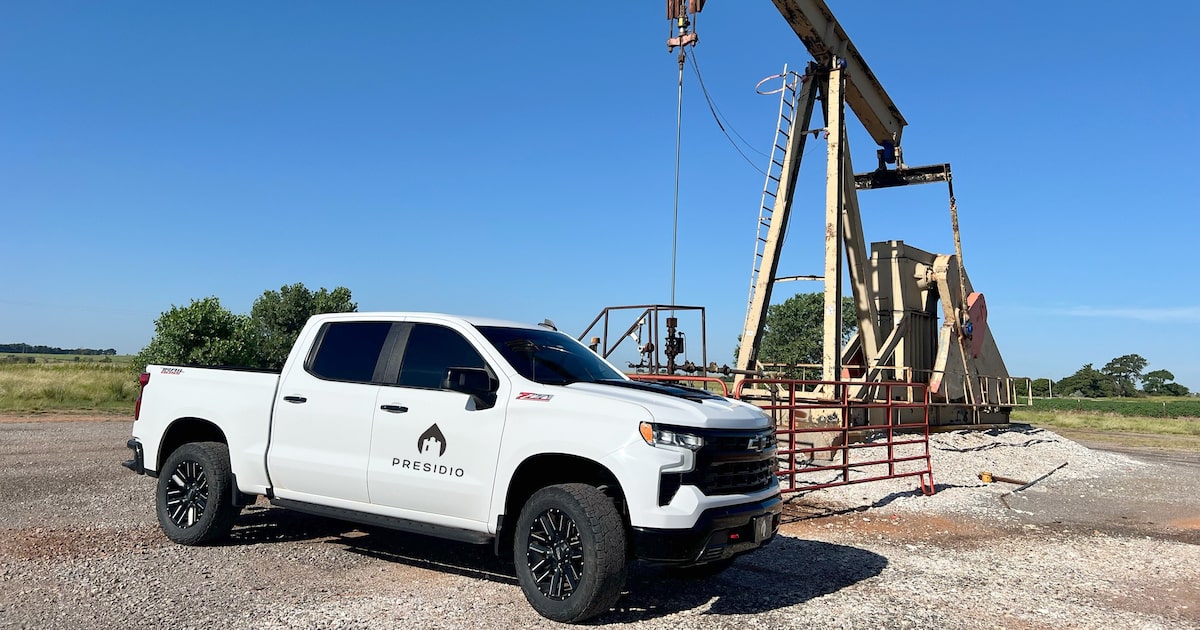Presidio Investment Holdings on Tuesday announced plans to combine with a special purpose acquisition company to go public in a reverse merger that values the new entity at close to $700 million.
The Fort Worth-based energy company – which focuses on optimizing “mature” oil and gas assets, but doesn’t drill new wells or acquire acreage like a traditional fossil fuel operator – will merge with EQV Ventures Acquisition Corp, a blank-check company already publicly traded on the NYSE.
Blank-check companies are publicly traded vehicles formed with the express purpose of buying a private company. Under existing regulations, a SPAC must use 80% of its assets to execute a merger, or dissolve.
Related:As Israel-Iran conflict roils markets, US oil supply becomes matter of ‘national security’
Business Briefing
The combined, renamed Presidio Production Company, will also be listed on the Big Board under the ticker “FTW” – a nod to its roots in Cowtown.
It will have an enterprise value of around $660 million, including assets, which it will deploy as part of a strategy to solidify itself as the “last, best steward of America’s oil and gas wells.”
It plans to pay shareholders a dividend supported by the cash flow stemming from “stable, mature oil and gas wells,” according to a statement by Presidio.
“Presidio represents the next evolution of the public oil and gas company — efficient, predictable, and yield-driven within a simple and transparent business model,” said Chris Hammack, co-founder and co-CEO, in a statement.
“We believe our track record of acquisitions and meaningful cost optimization make us the strongest near-term consolidator of mature assets,” he added.
There have only been a handful of energy IPOs this year — seven to be exact, according to data from Renaissance Capital — and the market has not treated them kindly.
Only one, Delixy Holdings, has had a positive return since going public last month, and it trades below $5 per share.
The remainder are all in the red by double digits, a reflection of the uncertainty that’s gripped global energy markets since the implementation of U.S. tariffs, and a fleeting boost from the conflict between Israel and Iran.
Early optimism about a potential spurt of oil and gas deals – sparked by a wave of big mergers involving ExxonMobil, Chevron, Conoco and a few private companies — has now been mostly tempered by realism of an oil and gas market that’s been mostly stagnant.
Fortunately for Presidio, however, it is not a traditional oil and gas company.
In an interview with The Dallas Morning News, co-CEO Will Ulrich explained that its “differentiated” model enables the company to expand its cash flow without absorbing much of the risk associated with fluctuations in commodity prices.
“It is different from other oil and gas companies in that we use a significant amount of hedging on our commodity prices, and we don’t drill new oil and gas wells. So you can think of us like a widget maker,” Ulrich said.
“We’re producing oil and gas molecules from existing well sets that we don’t acquire, and then when we go and we acquire them, we have an optimization program when they go onto our platform where we’re able to cut more than 50% of the operating expenses out of those businesses in our first year of owning them,” he added.
According to Ulrich, this enables Presidio to reap operating cash flow margins over 40%, comfortably beating the S&P 500’s energy subsector comparable returns.
The operations of traditional energy firms are highly capital-intensive, and IPO proceeds usually fund capital expenditures, paying down debt and mergers, among other activities.
As such, the sector’s fortunes are inextricably tied to the energy cycle, and companies are vulnerable to swings in global commodity prices.
It’s one of the reasons why Colorado-based Peak Resources withdrew its planned $66 million IPO on July 25, citing less favorable market conditions that pushed crude prices into retreat.
